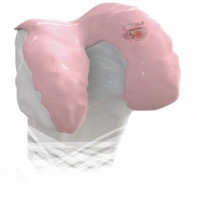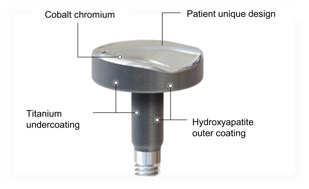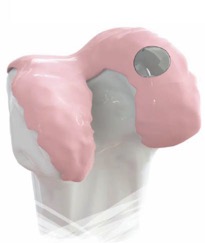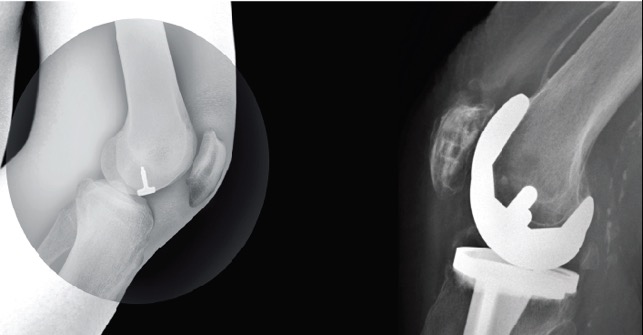Focal resurfacing implants
If you have an isolated focal full-thickness cartilage defect in your knee, with bare bone exposed, but with decent quality cartilage still present around the defect and in the rest of the joint, then you might potentially be an appropriate candidate for a custom-made Episealer focal resurfacing implant…
Treatment options for full-thickness cartilage defects
The main surgical treatment options for a symptomatic full-thickness articular cartilage defect are:
- debridement (tidying-up) of the rough/unstable edges of the defect by arthroscopic radiofrequency chondroplasty
- arthroscopic microfracture or
- articular cartilage grafting.
Procedures such as microfracture or articular cartilage grafting can require quite slow and prolonged rehab, and they tend to be associated with success rates in the region of approximately 80% at 5-year follow-up.
If you’ve already had one of these procedures, but if the procedure has failed to give you a good enough outcome for your knee, or if you’re not in a position to be able to cope with 6 weeks on crutches followed by a few months of rehab treatments, then one alternative option is to have your cartilage defect ‘plugged’ with an Episealer implant.
What is an Episealer implant?
An Episealer implant is a small metal prosthesis, a bit like a tiny mini-partial knee replacement. The patient has a special high-res planning MRI scan, and this is sent to the company, Episurf. Episurf then produce a design plan that shows whether or not the patient’s knee might actually be suitable for an Episealer implant.
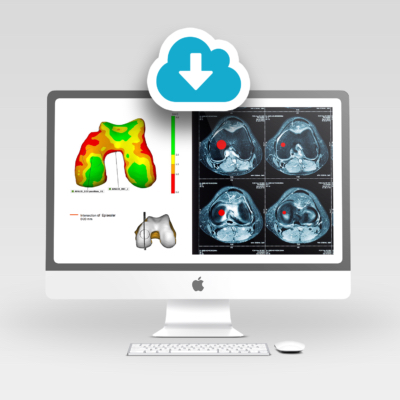
If the defect and the whole knee in general does look suitable, then Episurf manufacture a custom-made implant that exactly matches the size, shape and contours of the area in the patient’s knee that needs to be resurfaced, and this process normally requires an approximately 5-week turnaround period.
The advantages of an Episealer implant
The Episealer implant has a number of advantages over procedures such as articular cartilage grafting. With the Episealer:
- the patient can normally fully-weight-bear almost straight away, albeit with the help of crutches for the first couple of weeks or so,
- the overall recovery period is much quicker, being just a few months instead of several months, and
- the likelihood of success (certainly in the short-term) appears to be significantly higher, compared to the ‘biological’ options.
What are the potential negatives?
Microfracture can normally be performed arthroscopically. Articular cartilage grafting can sometimes be performed arthroscopically, but most of the time a mini-arthrotomy (a relatively small open incision is required). With Episealer resurfacing implants, a limited arthrotomy (partially opening up the knee, but not as much as with a full knee replacement) is required, as this surgery has to be performed ‘open’, not though keyhole surgery.
The success rates for Episealer implants appears to be very good, with follow-up studies showing significant improvements in knee scopes and significant decreases in knee pain at 2-year follow-up. However, because this is relatively new technology, we do not yet have any data to show what the longer-term results might be at, say, 10 or 20 years’ follow-up. The data that has, however, been published to-date certainly looks highly encouraging.
Given that this is a metal resurfacing implant (and given that all artificial implants have a tendency to wear and eventually fail, if given enough time), we would not normally recommend this mini-implant for younger patients (<40 years old), and this would normally tend to be a procedure recommended for older (40+) patients who might not be suitable for a biological reconstruction but who are still too young and/or active for more major surgery, such as a partial knee replacement.
Further information
How do I get assessed?
CONTACT US if you would like to arrange an appointment with a full assessment of your knee and to see whether you might be an appropriate candidate for an Episealer implant.

